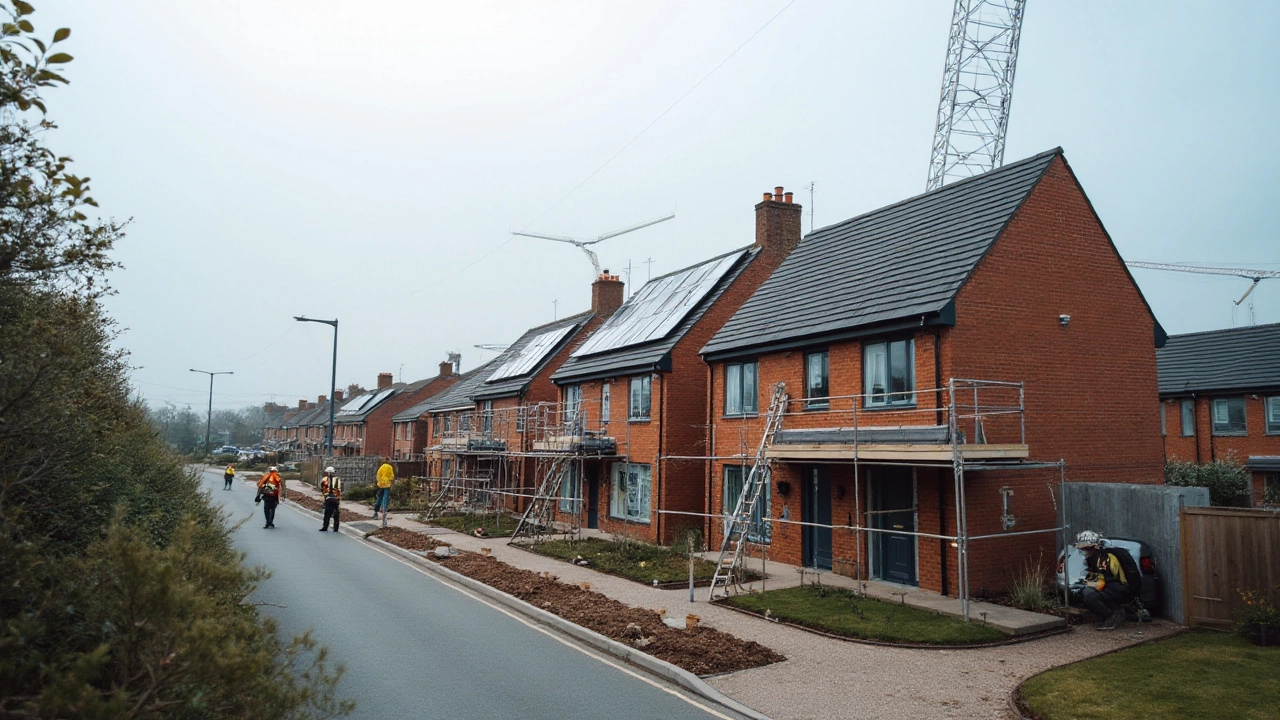Property Development: What You Need to Know Right Now
If you’re thinking about turning land into a home, office or mixed‑use complex, the first step is to get clear on what property development really means. It’s the whole process from buying a plot, getting designs approved, building the structure and finally selling or leasing the finished space. Knowing each stage helps you avoid surprises and keep costs under control.
Most developers start with a solid market check. Look at demand in the area, what type of building people want, and what competitors are doing. A quick survey of nearby projects and recent sales gives you a realistic picture of rent levels or resale prices. This research guides everything else – from the size of the building to the materials you choose.
Planning & Approvals Made Simple
Getting planning permission can feel like a maze, but breaking it down helps. First, talk to the local council early. They’ll tell you about zoning rules, height limits and any special requirements, like green space or parking. Once you know the constraints, hire an architect who can design a plan that fits those rules without cutting corners.
Don’t skip the environmental checks. Soil tests, flood risk assessments and energy performance studies are often needed before an application is accepted. A small upfront investment in these studies saves you from costly redesigns later.
Managing Costs and Quality
Budgeting is where many projects go off track. Start with a detailed cost estimate that includes land price, design fees, construction work, utilities and a contingency of about 10‑15% for unexpected items. Track every expense in a spreadsheet or simple software – real‑time data lets you spot overruns before they spiral.
Choosing the right contractor makes a big difference. Ask for references, check past projects and confirm they have the appropriate licences. A good contractor will stick to the schedule, keep the site safe and deliver work that meets building codes.
Quality doesn’t have to mean expensive. Use standard‑grade concrete, steel or timber where possible and reserve premium materials for visible areas like the façade or interior finishes. This approach keeps the look high‑end without blowing the budget.
Timing is another hidden cost. Delays often happen because of weather, supply shortages or missed approvals. Build some buffer days into the schedule and have a backup supplier list ready. When you communicate regularly with the builder and council, you can adjust plans quickly and keep the project moving.
Sustainability is no longer optional. Adding insulation, energy‑efficient windows and solar panels can raise the upfront cost but usually pays back through lower utility bills and higher resale value. Many local authorities also offer incentives for green builds, so check what grants or tax breaks are available.
Finally, think about the end game. Whether you plan to sell the building, rent it out or keep it for personal use, your exit strategy will affect design choices. For rental properties, focus on low‑maintenance finishes; for sales, highlight modern aesthetics and smart‑home features.
Property development is a mix of research, planning, budgeting and hands‑on management. Keep each step simple, stay organized and don’t be afraid to ask experts for help. With the right approach, you can turn a piece of land into a valuable asset that meets market demand and stands the test of time.

Understanding What Defines a New Build Home
Nov 24, 2024, Posted by Damon Blackwood
New build homes are homes that have been recently constructed and have had no previous owners. They are a significant part of the housing market, offering advantages like modern designs, energy efficiency, and lower maintenance costs. Understanding what qualifies a home as a new build can help potential buyers make informed decisions. Important factors include the construction timeline, design innovations, and sustainability features. This article explores these elements, providing insights for buyers navigating the real estate market.
MORESEARCH HERE
Categories
TAGS
- foundation repair
- commercial construction
- construction
- new builds
- home improvement
- home renovation
- bathroom renovation
- construction materials
- residential construction
- building codes
- home foundation
- building types
- renovation tips
- construction differences
- contractor
- building materials
- foundation cracks
- home construction
- architectural services
- building contractor